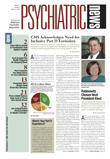Awoman hospitalized for treatment of her mood disorder snored so loudly that other patients complained. A sleep study showed she had severe obstructive sleep apnea.
After using a continuous positive airway pressure (CPAP) device that delivers air via a mask worn in sleep, she felt more focused and alert.“ Her mood improved, and we were able to make greater inroads into her psychiatric problems,” related William Clemons, M.D., then a resident in psychiatry at West Virginia University in Morgantown.
The contribution of a previously unrecognized sleep disorder to the woman's psychiatric illness proved a signal event for Clemons. He pursued a sleep-medicine fellowship at the University of Michigan, completing the one-year program in 2004. He now practices sleep medicine at the Baptist Sleep Institute in Knoxville, Tenn.
While in medical school, Paul Teman, M.D., took a two-week elective in sleep medicine that included undergoing an overnight sleep study. Found to have mild obstructive sleep apnea, he was started on CPAP treatment. Then overweight, he shed excess pounds and no longer needs the CPAP device.
“I already had planned a career in psychiatry,” he recalled.“ My experience helped me understand apnea patients' resistance to wearing a CPAP mask, a big issue in compliance.”
The elective also heightened his interest in behavioral consequences of sleep disorders. Teman now is taking a sleep medicine fellowship at the Mayo Clinic, where he also completed his psychiatry residency.
“We are seeing an explosion of interest in sleep medicine as a career option for psychiatrists,” said Michael Sateia, M.D., a professor of psychiatry and chief of sleep medicine at Dartmouth Medical School. This interest is reflected in the American Board of Medical Specialties' (ABMS) approval last year of sleep medicine as a subspecialty for physicians practicing psychiatry, neurology, internal medicine, and pediatrics, he noted. ABMS recently added otolaryngology to the list.
Starting in 2007, the American Board of Internal Medicine will administer the sleep-medicine board exam, with certification conferred by boards overseeing the specialties listed above. The exam formerly was given by the American Board of Sleep Medicine.
“The new exam acknowledges that sleep medicine involves a sufficient body of knowledge and skill sets to qualify as an independent medical subspecialty,” said Lawrence Epstein, M.D., president of the American Academy of Sleep Medicine (AASM) and regional medical director for Sleep HealthCenters in Boston.
The Accreditation Council for Graduate Medical Education (ACGME) has approved 24 sleep-medicine fellowships nationwide. ACGME recognition means that funding for fellowships is available from the Centers for Medicare and Medicaid Services. Fellowships typically provide an annual stipend of about $60,000.
Stephen Grant, M.D., now in PGY-4 of an internal medicine/psychiatry residency at Dartmouth, plans to apply for a sleep-medicine fellowship.“ I like to bill myself as doing mind/body medicine,” he said.“ Sleep is the perfect example of that.
“About two-thirds of the patients I see in the psychiatry clinic and one-third of my internal medicine patients report sleep problems. I always ask about sleep patterns and habits.”
Grant sees veterans with posttraumatic stress disorder who served in Iraq or Afghanistan at an internal medicine/psychiatry clinic at the Veterans Affairs Medical Center in White River Junction, Vt. “One of our immediate challenges is to restore their sleep,” he noted.
Hunter Hearn, M.D., now a PGY-3 resident in psychiatry at Dartmouth, is exploring sleep medicine via an elective. “It's a nice hybrid of medicine, psychiatry, and neurology,” he said.
In contrast to much of psychiatry, he observed, sleep medicine utilizes objective tests such as polysomnographic studies. Some of his fellow residents wonder whether sleep medicine involves long hours looking at a computer screen.
“I find that's a small part of it,” he said. “Most of what I'm doing involves direct patient contact. Even if I don't go into sleep medicine per se, I feel comfortable evaluating patients with a sleep complaint, knowing what I can treat and when to refer.”
Allen Richert, M.D., the psychiatry residency training director at the University of Mississippi Medical Center, thinks sleep medicine education belongs in the psychiatry residency.
“Sleep disorders and sleep deprivation contribute to depressed mood, irritability, attention deficits, and sleepiness,” he said.“ Psychiatrists need experience with hypnotic medications and cognitive behavioral therapy for insomnia.”
Patients with sleep disorders benefit from a psychiatric perspective, he added. “Psychiatrists understand how patients' emotions drive behavior.”
After completing a sleep-medicine fellowship at Beth Israel Deaconess Medical Center in Boston in 2004, Martha Praught, M.D., entered private practice in Brookline, Mass.
She has diagnosed sleep disorders in patients with psychiatric problems including mood disorders, attention-deficit/hyperactivity disorder, schizophrenia, and menopausal issues.
“It's a challenge to stay active in sleep medicine in a private-practice situation,” she said. “Not all insurers reimburse psychiatrists for diagnosing and treating sleep disorders. That has to change.”
Psychiatrists interested in sleep medicine should contact their local sleep disorders centers, suggested Daniel Buysse, M.D., a professor of psychiatry at the University of Pittsburgh School of Medicine. “Many centers are looking for more input from psychiatrists to help them manage patients with sleep disorders and psychiatric comorbidity.”
AASM offers continuing medical education courses on sleep and sleep disorders for psychiatrists and other physicians throughout the year. Details are posted at<www.aasmnet.org>. Information and application forms for ACGME-approved sleep medicine fellowships are posted at<www.aasmnet.org/FellowshipTraining.aspx>.▪
